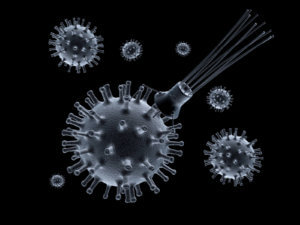Sep
26
2016
Small Solutions Lead to Big Impact in Fighting Cancer
We’ve been waging a war against cancer for decades, but the current winners of the fight might be smaller than the human eye can see. New developments in nanotechnology may transform our ability to treat this illness.
What Is Nanotechnology?
Nanotechnology refers to technological strategies that work on a very, very small scale. These tiny machines are less than 1 nanometer (nm) in diameter. To give you a sense of how small that is, a single human hair is 75,000 nm in diameter. Most viruses are tens of nanometers in width. That means that scientists are able to pack a lot of technology into a very tiny package.
Nanotechnology has already transformed numerous industries. For instance, researchers have developed nanoscale additives for strong and lightweight composite materials for automobile bumpers or baseball bats; thin, waterproof films for eyeglasses; and nanoscale sensors to detect spoiling food. Now, scientists are hoping that nanotechnology may provide new solutions to fight cancer and other diseases.
How Nanobots Could Help to Cure Cancer
Although there are many types of cancer affecting tissues throughout the body, they all share the same fundamental problem: unhealthy cells that continue to replicate without any way to stop. Unfortunately, many of our current treatments for cancer affect the entire body. For example, chemotherapy or radiation therapy affect large areas of the body without differentiating between healthy cells and cancerous cells.
Now, researchers at Bar-Ilan University in Israel have developed nanobots that can more precisely deliver cancer-fighting drugs to cancerous cells, leaving healthy cells intact. The nanobots are created from specially folded DNA that can recognize 12 different types of cancer cells. When they encounter a cancer cell, the nanobots unload their drugs to the exact location it is needed most. The nanobots may also be able to physically connect with one another, repairing damaged tissue.
Human trials are just beginning, but these findings indicate that nanotechnology may be a robust area for future research to benefit human health.
While we may still be several years away from using nanobots to cure cancer and other serious diseases, Visiting Nurse Health System is committed to supporting the latest technologies available today to manage chronic illness. Learn more about how Visiting Nurse currently helps patients manage specific chronic diseases at home to improve quality of life.


